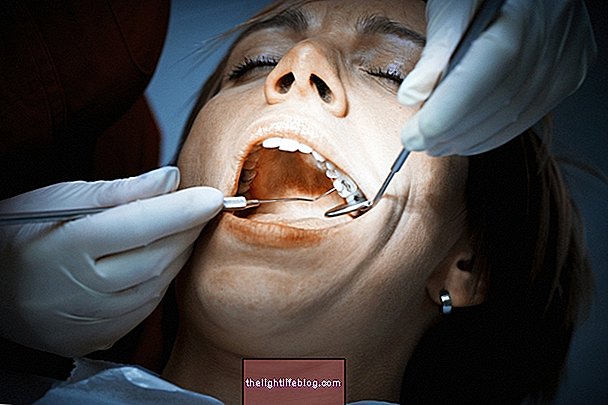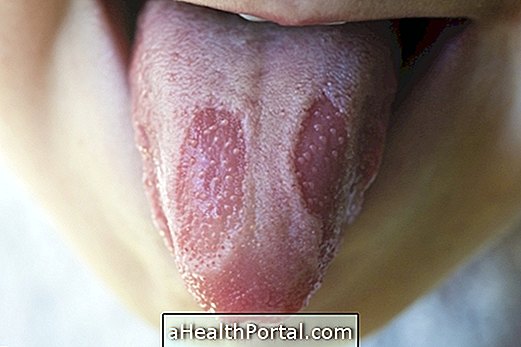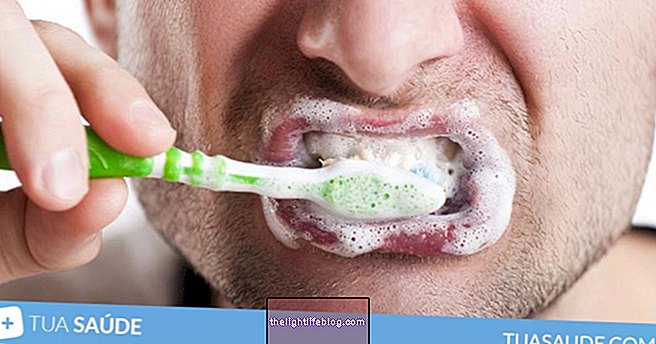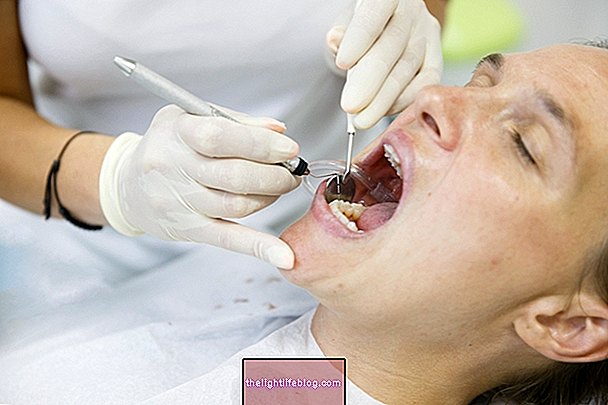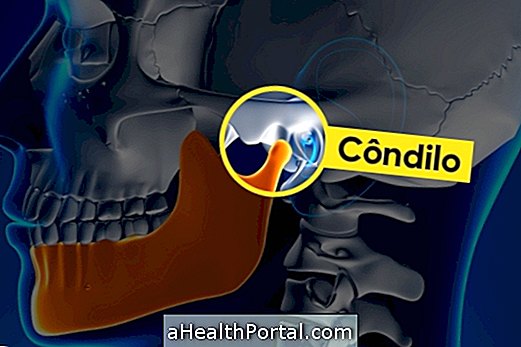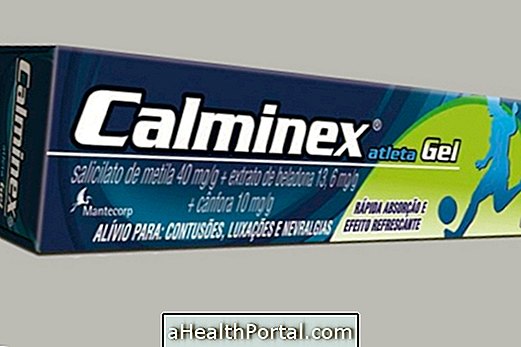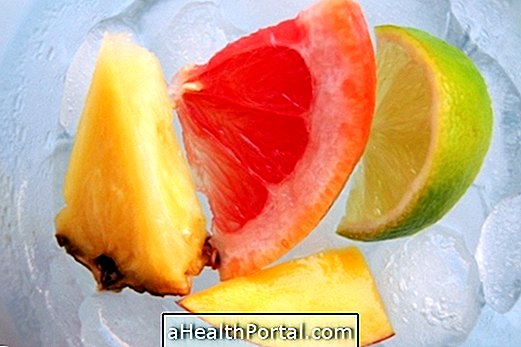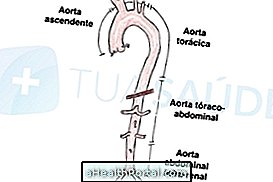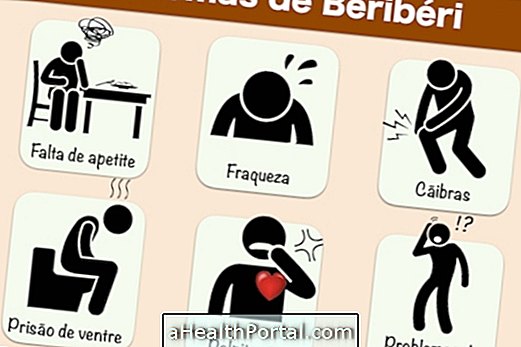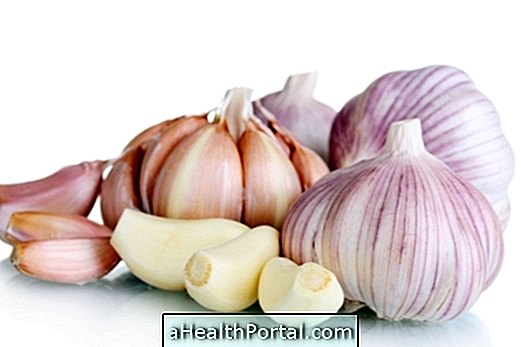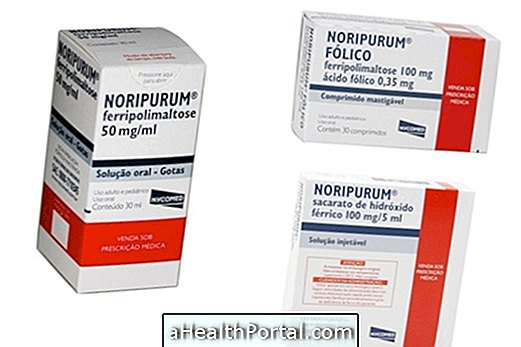Bitter taste in the mouth can have several causes, ranging from simple problems such as poor oral hygiene or use of some medications, to more serious problems such as yeast infection or reflux, for example.
In addition, the use of cigarettes can also give a bitter taste in the mouth, which lasts between a few minutes to a few hours. Usually, this type of taste change improves after eating other foods, drinking water or brushing your teeth.
However, if the bitter taste persists for a long time or if it occurs very often, it is recommended to consult a general practitioner or a gastroenterologist to identify if there is any disease that may be causing the symptom and initiate appropriate treatment.
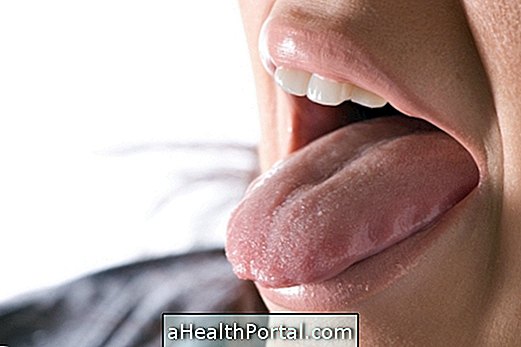
1. Poor oral hygiene
This is the main cause of bitter taste in the mouth, especially when waking up, and it happens due to the accumulation of bacteria in the tongue and that it appears in the teeth and gums, also causing bad breath.
- What to do : To treat this cause, just brush your teeth and maintain a routine of at least 2 brushings a day, one after waking up and another before going to sleep, for example. In addition, it is also very important to brush the tongue well because the lingual rash is the main cause of bitter taste in the mouth.
2. Use of antibiotics or antidepressants
There are some remedies that, when ingested, are absorbed by the body and released into the saliva, leading to a change in taste, leaving the mouth to loin. Some examples are antibiotics, such as tetracycline, gout remedies such as allopurinol, lithium or medicines used to treat some heart disease.
In addition, people who use antidepressants may also have dry mouth more often, which changes the taste, as the taste buds are more closed.
- What to do : usually the bitter taste disappears after a few minutes of ingesting this type of medication. However, if it is constant, the doctor can be consulted to evaluate the possibility of using another medicine that does not cause this type of side effects.
3. Pregnancy
Dysgeusia, also known as metallic taste in the mouth, is a symptom very common to several women during the first trimester of pregnancy. This happens due to the hormonal changes that happen in the woman's body, leaving the palate more accurate. See other symptoms may be a sign of pregnancy.
That way, some pregnant women may report a taste similar to having a coin in their mouths or drinking water from a glass made of metal, for example.
- What to do : A great way to eliminate the bitter taste of the mouth is to drink lemonade or suck on a lemon popsicle. Generally, this change lasts only a few days, disappearing naturally.

4. Use of vitamin supplements
Some vitamin supplements that contain high amounts of metallic substances, such as zinc, copper, iron or chromium, can lead to the appearance of a metallic and bitter taste in the mouth. This side effect is very common and usually appears when the supplement is completely absorbed by the body.
- What to do : In these cases you should wait a few minutes to allow the body to absorb the supplement. If the bitter taste is very intense or very frequent, the doctor may be consulted to evaluate the possibility of reducing the dose or changing the supplement.
5. Gastroesophageal reflux
The reflux occurs when the contents of the stomach can reach the esophagus, after beginning digestion, carrying acid to mouth, which leaves the mouth with a bitter taste and even with a bad smell.
- What to do : Avoid eating too fatty foods or difficult digestion as they increase the production of acid through the stomach. In addition, it is also important to avoid very bulky meals as they make it difficult to close the stomach. See other tips on how to take care of reflux:

6. Hepatitis, fatty liver or cirrhosis
When the liver is not functioning properly, the body begins to accumulate high amounts of ammonia, which is a toxic substance, which is usually transformed into urea by the liver and eliminated in the urine. These increased levels of ammonia cause a change in taste, similar to fish or onion.
- What to do : usually problems in the liver are accompanied by other symptoms such as nausea or excessive tiredness. Therefore, if hepatic disease is suspected, a hepatologist should be consulted to perform blood tests and confirm the diagnosis, initiating treatment if necessary. Understand the signs that may indicate liver problems.
7. Cold, sinusitis and other infections
Upper respiratory tract infections, such as colds, rhinitis, sinusitis or tonsillitis, for example, can cause bitter taste in the mouth due to the substances produced by the bacteria of this type of infections.
- What to do : In these cases it is important to drink at least 2 liters of water a day as it helps to relieve bitter taste and facilitates recovery. However, it is important to consult a general practitioner to identify the specific cause and initiate appropriate treatment. In the case of colds, look at some home-based care to recover faster.

